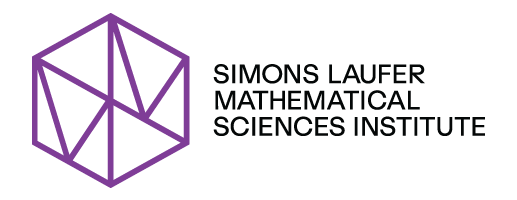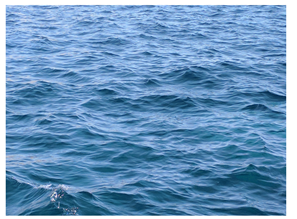
Fluid Dynamics
SLMath - January 2022

Fluid dynamics is a broad area of research that has been the subject of mathematical investigation for hundreds of years, inspired by but not limited to practical applications in biology, chemistry, physics, and engineering. The spring 2021 MSRI semester program in mathematical problems in fluid dynamics brought together established and early-career researchers in several topics related to fluid dynamics, focusing on incompressible fluids, which do not change density under pressure.
The program had four primary research areas. The first two, incompressible Euler flows and incompressible Navier-Stokes, deal with the flow of incompressible fluids that are either inviscid (Euler) or viscous (Navier-Stokes). These two areas have extensive overlap and shared a seminar series during the semester program. The next area is free boundary problems, where researchers explore the local and long-term behavior of waves with given starting conditions. Finally, an applied fluids seminar focused on topics coming more directly from research in other areas of science, such as groundwater contamination and blood circulation.
Thomas Alazard, MSRI’s Chancellor Professor for the year and a co-organizer of the program, taught a semester-long course on free surface flows in fluid dynamics. The notes for this course, revised in response to feedback from attendees, have become a first draft of a book on the topic.
In addition to seminars in the main research areas, participants organized weekly meetings of a graduate student seminar, to allow students to practice presenting their work and receive constructive feedback about their presentations, as well as a career development panel to assist early-career researchers in their next steps. Introductory workshops helped ensure that semester-long participants had a shared base of knowledge, and the topical workshop in April allowed 34 researchers to highlight current work and hot topics in the field.
For both better and worse, due to the COVID-19 pandemic, the semester took place almost entirely online. This necessary adaptation meant that there were fewer barriers to participation by researchers from other countries, particularly lower-income countries, or those who could not leave their institutions for a semester program. On the other hand, participants often had to contend with their day-to-day professional and personal responsibilities while still trying to attend the program.
The serendipitous meetings and informal discussions that take place at in-person conferences are hard to replicate virtually, but MSRI and program organizers worked to create opportunities for these interactions. They used several online platforms, including Sococo, GatherTown, and Zoom, that allow for informal small group discussions. Early career participants found that it was sometimes less intimidating to approach a more senior colleague in these virtual environments, especially when they were randomly thrown together in breakout rooms during a social meeting.
Thirteen postdoctoral scholars were paired with senior mathematician mentors, which led to several fruitful research collaborations. Collaborations also arose among other participants, some of which are ongoing. One small research group has already produced three papers addressing various problems in water wave dynamics, all of which have been coauthored with graduate student participants.
If circumstances permit it, participants in the fluid dynamics program plan to come together at MSRI for a month in summer 2023 to share the work they have done since the program ended and, in some cases, to meet their research collaborators in person for the first time.
